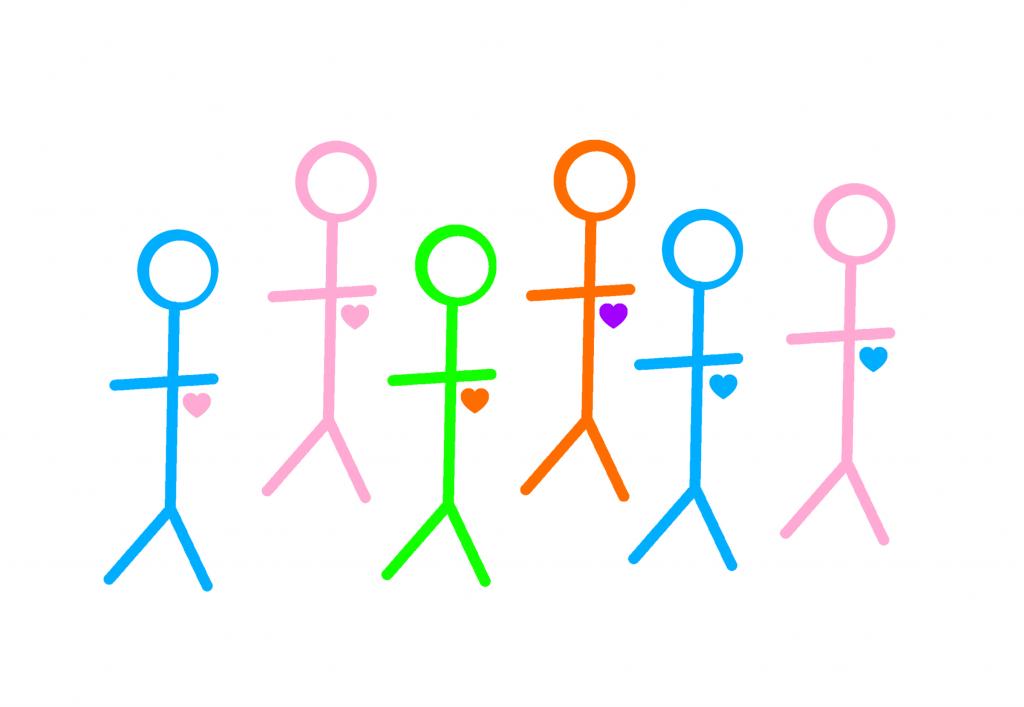Gender Identity
What is Gender Identity?


Gender refers to the way in which a person feels and thinks about themselves, and the way they dress, speak or move. This can be different to the ‘sex’ they were given at birth.
A person’s ‘gender’ describes their sense of their identity. For example, you might identify as a girl, or a boy, or neither or a mix of both. Some people feel strongly that they are “born this way” when it come to their gender identity, and they might find the idea of having, for example, “a boy’s brain in a girl’s body” helpful in explaining their experience.
Gender dysphoria is a condition where someone is uncomfortable or distressed because their gender identity and biological sex aren’t the same. This can start at a very young age and it can have a big effect on them.
Having a sense of identity is really important because it helps us to be happy, healthy and resilient.
Types of Gender Identity
These are some of the ways children and young people might use to describe their gender identity:
Transgender or Trans: this is when someone feels their gender is different from the gender they were assigned at birth. Trans people might*:
- feel like they’re in the ‘wrong body’
- want to change their clothes to better match the gender they identify with
- be scared about telling people about how they feel
*It is very important however, that no one assumes what a young person’s gender is based on their personality, interests or the clothes they wear.
Non-binary, gender fluid or gender queer: this means someone doesn’t identify as either male or female. They could identify as both, or neither.
Cisgender: this is when someone’s gender identity is the same as the gender they were assigned at birth.
Being transgender or trans is when someone feels that their gender identity is different from the gender they were given at birth.
What should I do if I am struggling with how I am feeling?
Here are some things you can do if you are struggling with your gender identity:
Talk to an adult you trust – speaking to your parents/carers, a teacher, social worker or another trusted adult might be scary at first but it can help you to discuss how you are feeling and build your confidence
Visit your doctor – Your doctor can talk to you about ways to cope and what support is available to you
Express your feelings – Write down how you’re feeling, talk to a friend
Find out more – Have a look at the pages in the links below to find out more about gender identity, but then always talk to someone you trust
Videos
What it Means to Be Transgender – video from the NSPCC
Where can I get more information?
These websites contain information about Gender Identity you may find useful. It is always a good idea to speak to an adult you trust about how you are feeling.
ChildLine advice page for young people who may be feeling confused about their gender
ChildLine one to one chat with a Counsellor
Information and links to support from Brook
Worried about your gender identity? Guide for Teenagers
Information for young people from the Gender Identity Development Service from the NHS
Support for young people who may be suffering bullying
Please note that the WSCP is not responsible for the content of external websites. Always speak to someone you trust if you have any concerns.

